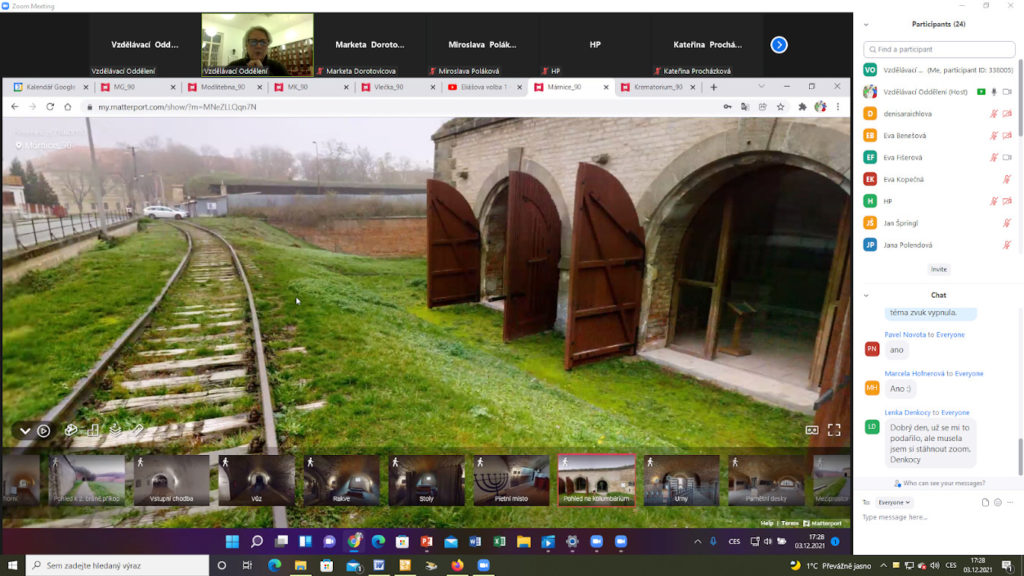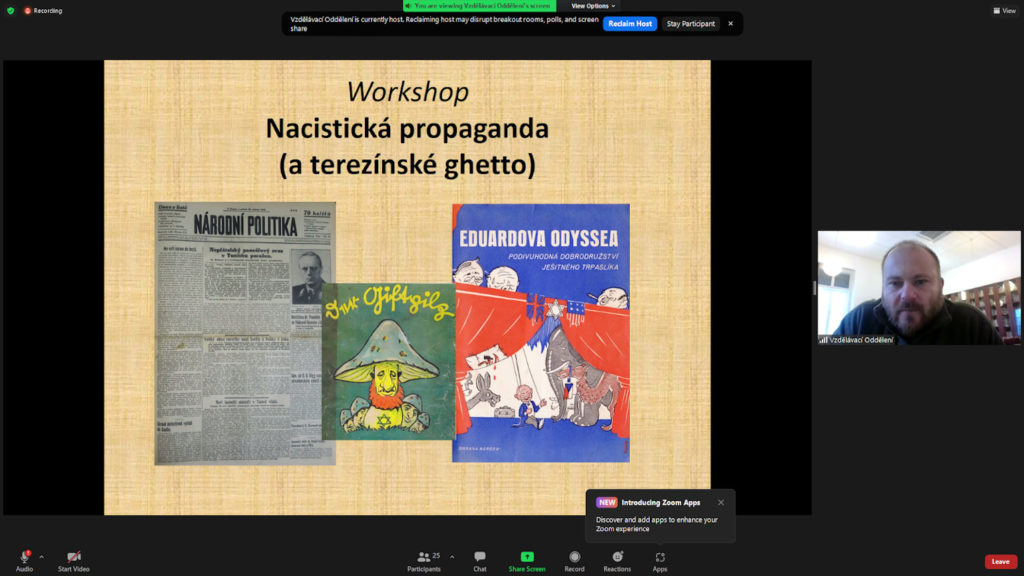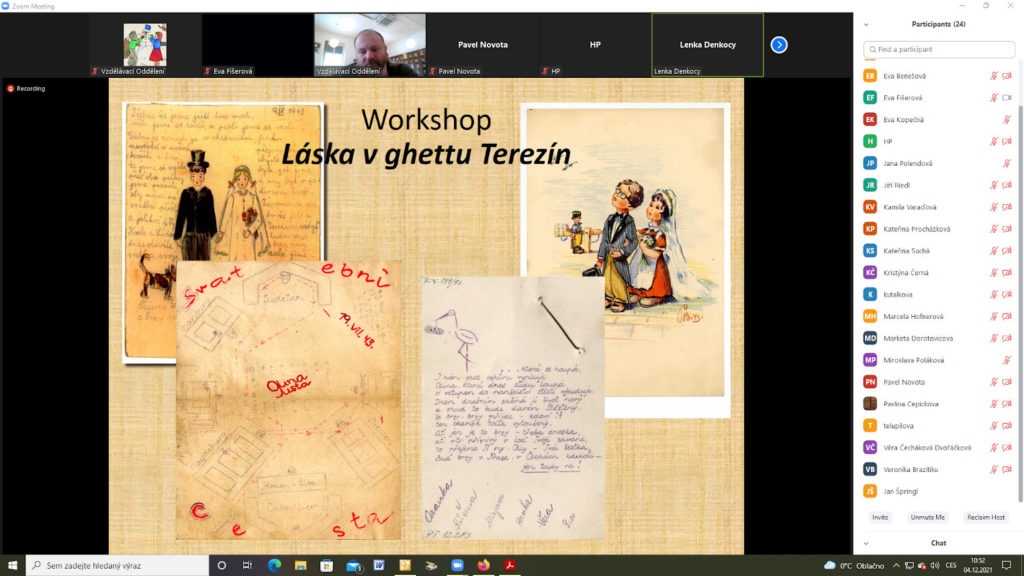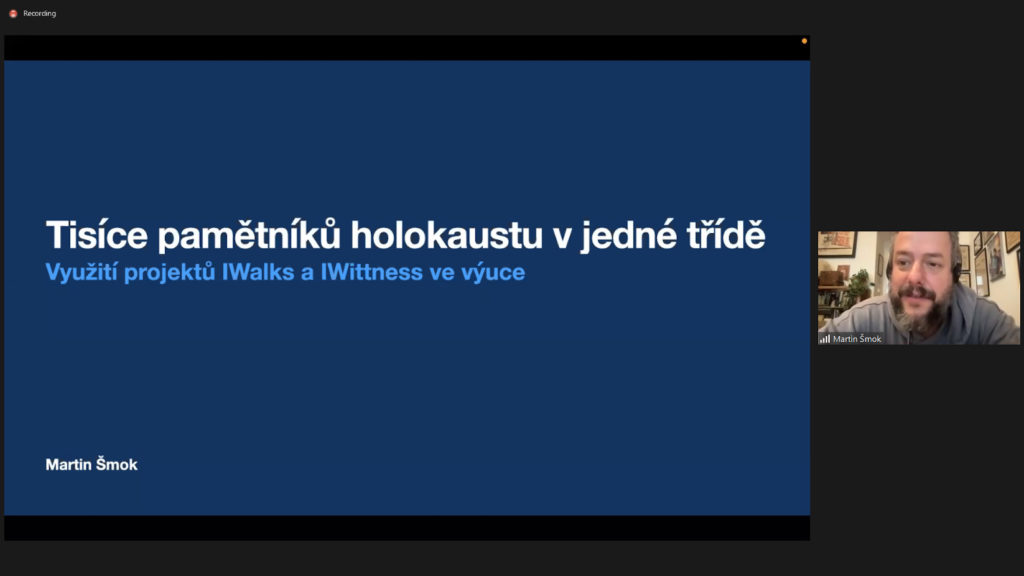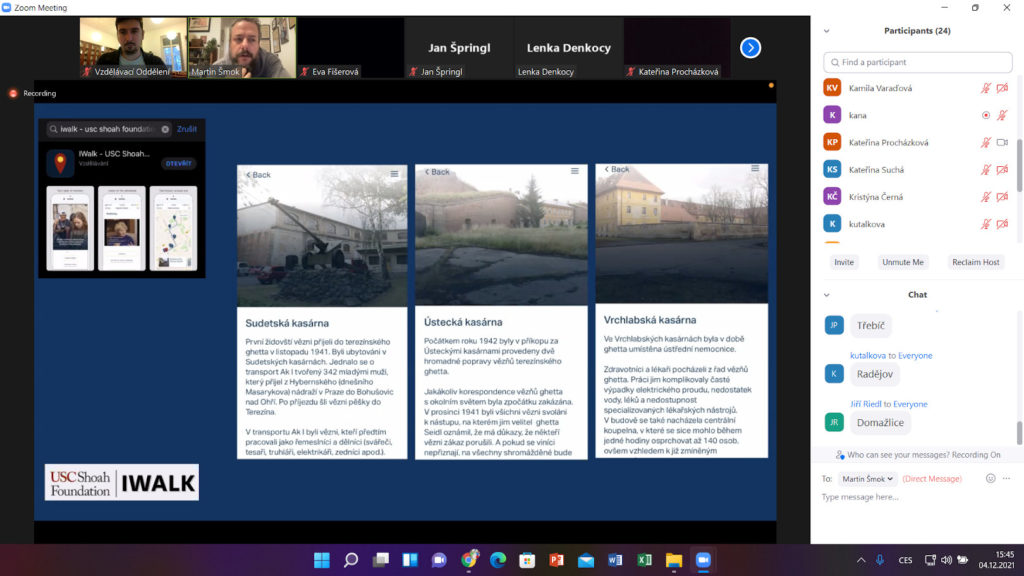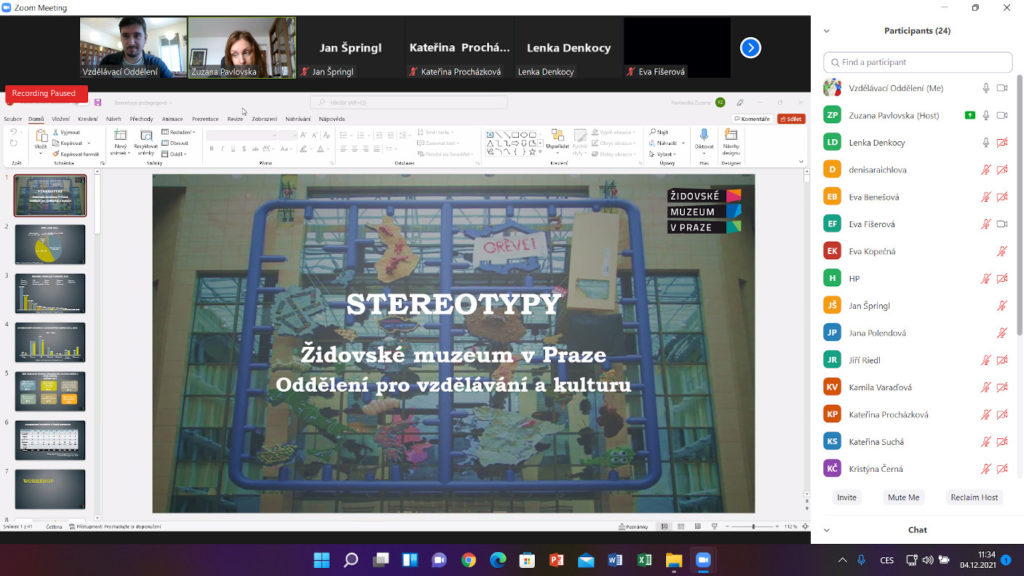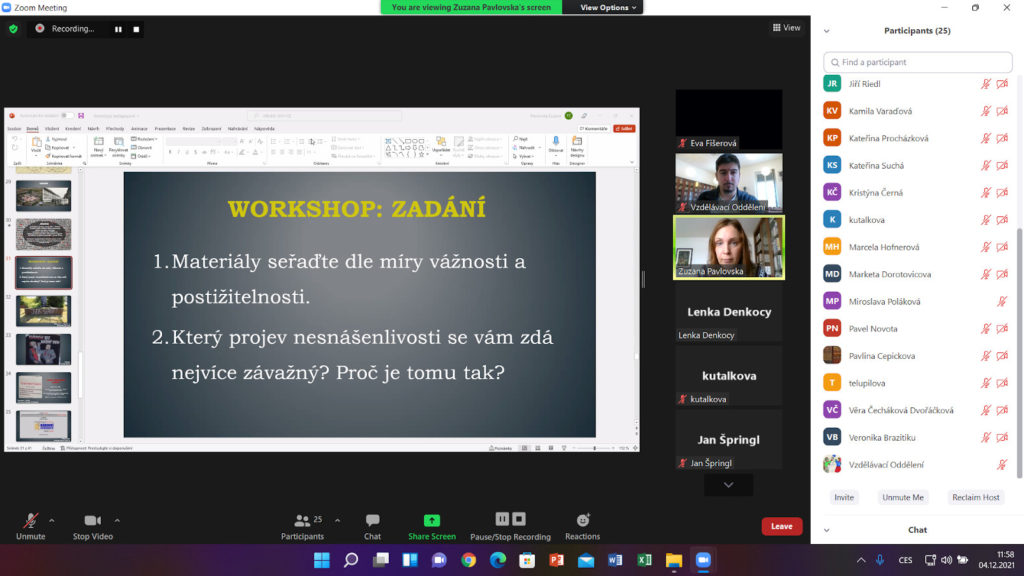At the end of last year the Terezín Memorial had to cancel, for the second time running, its second-level training course for Czech schoolteachers in Terezín called Holocaust in Education, with the participation of foreign lecturers, but also the fourth-tier seminars in Israeli Yad Vashem (Jerusalem). Once again, the decision had to be taken due to complications hindering organization of the educational programs caused by the ongoing COVID-19 pandemic.
Instead of the above events the Terezín Memorial offered Czech schoolteachers interested in the subject its historically first educational webinar called Teaching about the Holocaust and held on two occasions: on December 3–4 and December 10–11, 2021.
In both cases, the program of the webinars, which started on Friday afternoon and ended on Saturday evening, was identical. Each webinar opened with a virtual tour of the Terezín Ghetto, with Helena Palová and Jana Sumičová, lecturers of the Memorial´s Department of Education acting as “guides“. After the online tour their colleague Jan Špringl outlined the didactic principles applied by the institutions engaged primarily in teaching about the Holocaust. Saturday program featured three workshops; in one of them Jan Špringl introduced the Memorial´s online activities for schoolchildren; Zuzana Pavlovská from the Jewish Museum in Prague then spoke about the methods employed by the Museum in its own educational programs devoted to contemporary anti-Semitism, and Martin Šmok from the company Open Eye, a service organization of the USC Shoah Foundation – Institute for Visual History and Education, demonstrated how to use in practical tuition the video testimonies of the Shoah survivors in the projects IWitness and IWalks.
In all, 33 schoolteachers from all over the Czech Republic attended both webinars for which the Terezín Memorial obtained accreditation from the Czech Ministry of Education, Youth and Sports. Needless to add, the positive replies, given by the attending teachers in their electronic questionnaires filled in at the end of each webinar, enormously pleased all the people who took part in the organization and course of the events.
Jan Špringl

